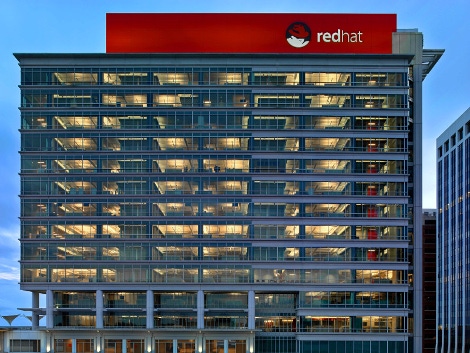AWS, Google, Microsoft, Red Hat's New Registry to Act as Clearing House for Kubernetes Operators
Operators make life easier for Kubernetes users, but they're so popular that finding good ones is not easy. Operatorhub.io is an attempt to fix that.

Last week Red Hat, which is in the process of being acquired by IBM, announced that it's joined forces with Amazon Web Services, Google Cloud Platform, and Microsoft to launch Operatorhub.io, an online public registry for finding Kubernetes Operator services.
Kubernetes is the most widely used tool for managing containers, and Operators are a way to package, deploy, and manage Kubernetes applications to lighten the workload for Kubernetes users. A Kubernetes application is an application that is deployed on Kubernetes and managed using Kubernetes APIs and the kubectl command line tool.
Operators are sort of the runtime that manages Kubernetes applications. As Brandon Philips, Red Hat's CTO of CoreOS, wrote in a blog last May, "Think of an Operator as an extension of the software vendor’s engineering team that watches over your Kubernetes environment and uses its current state to make decisions in milliseconds."
It's not surprising that since Operators make life easier for IT teams deploying and maintaining Kubernetes applications, they're becoming very popular. The problem is, until now, finding operators hasn't been easy.
"If you crawl GitHub looking for an Operator or looking for the code base to build one, you'd get thousands of hits right now," Diane Mueller, Red Hat's director of community development, told Data Center Knowledge. "Lots of people are using the Operator SDK, the tools, and the Operator Framework, so it's really hard to find them, and to find those of quality."
That's the purpose of Operatorhub.io. It aims to make Operators easy to find. Even better, everything it lists has been tested to make sure it meets certain standards.
"To be listed, an Operatorhub Operator must successfully show cluster lifecycle features, packaging that can be maintained through Operator Lifecycle Management, and an acceptable level of documentation," Mueller said.
The project includes a discussion forum for users to seek help from other Operator users and creators. This is important, Mueller said, because Operators are new, first introduced by CoreOS (now part of Red Hat) in 2016. Even organizations that are already adopting them as part of their workflow are still very much in the learning phase.
"At Kubecon I did two talks on Operators with Sébastien Pahl from CoreOS, and those rooms were packed to capacity," she said. "The day after Kubecon, we did an event for the community. We hosted a room to do hands-on training on Operators. I only had a hundred seats in the room and I had 400 people sign up.
"We've now rinsed and repeated that multiple times to keep training people on how to do this. It is really the most popular pattern for people who are building services to run on Kubernetes."
Red Hat, which is already integrating Operator capabilities into some of its core products, is hoping that making Operators easier to find and use will help it's hybrid cloud efforts. Its cloud partners are on board because containers are a main driver behind enterprise cloud use, so what's good for Kubernetes is good for the cloud. AWS is already making an Operator available on the registry for managing AWS resources.
"It's not a Red Hat project; it's a community project," Mueller said. "Red Hat OpenShift 4.0 will have an Operator Hub embedded into the UI. Most of the other service providers, Google, and everybody else, are coming right along with that as well. If you think about the old marketplaces that everybody had for apps, images, and things like that, I think this is basically starting to replace all of that."
Read more about:
Data Center KnowledgeAbout the Authors
You May Also Like








.jpg?width=700&auto=webp&quality=80&disable=upscale)
